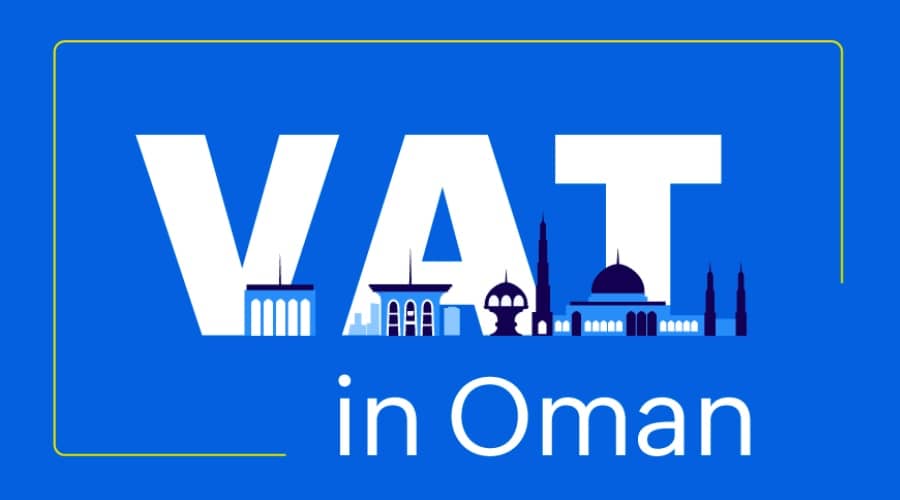Blog
How to Adjust the Value for VAT in Oman
qatar
In the event of a full or partial cancellation or refusal of goods and services, be it mandatory or voluntary, the Taxable Person will adjust the value of Tax Due at a future date than the date of supply, as long as the following conditions are met:
- After the Tax Due Date, the cancellation or rejection occurs.
- As per the Regulations, the Taxable Person in Oman issues a credit note with a reference to the tax invoice numbers.
- The adjustment is shown in the accounting records.
- The return of goods. In the case of delivering the goods, the value of the Consideration is returned in full or in part within three months of the date of supply, provided no party has received material or any other benefit from it.
How to adjust the value for VAT in Oman?
A Taxable Person in Oman can lower the value of goods and services if the following conditions are met:
- The Taxable Person has a published and consistent commercial policy for discounts.
- These Regulations provide for a reduction through a credit note.
- The accounting records reflect it.
When a change or adjustment occurs, the Taxable Person is notified. It results in an increase in the value of the tax due on goods and services because of the following factors:
- Issuing a debit note under these Regulations, as long as it has a reference to the original tax invoice numbers that have been changed or adjusted.
- Adjust the tax due in the accounting records.
What are the necessary conditions to adjust the value on non-payment in Oman?
If the Consideration was not fully or partially collected, the Taxable Person may adjust the value of the Tax Due in Oman if the following conditions are met:
- The unpaid Consideration occurs due to the supplies made within the Taxable Person's Activity.
- The Taxable Person has recorded the unpaid Consideration on each supply mentioned in his accounting books as per the Law.
- The Taxable Person has abided by the procedures mentioned in these regulations. The value of the supply mentioned in his books without VAT is more than 5,000 Omani Rials.
- The Taxable Person has declared and paid the Authority the tax due on the goods and services.
- The period between the due date of tax payment mentioned on the invoice and the date of the adjustment by rules is not less than twelve months.
- If there is no tax payment due date stated in the invoice, it is deemed as the tax invoice date.
- The Taxable Person must write off the Consideration value for the goods/services as a bad debt.
- The supply is not made to people related to the taxable person.
- The taxable person should notify in writing the customer about the amount adjusted in words.
In all cases, the taxable person in Oman can adjust the value of the tax on supplies within three years by following the conditions.
Collecting the outstanding consideration for VAT in Oman
The following procedures are required to collect the outstanding Consideration:
- A final judgment is passed, asking the debtor to pay the Taxable Person the amount owed.
- A skilled judge issues a debt performance order to the Taxable Person.
- Proof of debt to limit and liquidate the debtor's estate in the event of his death (before a competent court).
- The Taxable Person's claim to the debt to the liquidator. The debtor company's dissolution and liquidation.
- On the occasion of a judgment declaring the debtor bankrupt in front of a bankruptcy manager, taking the necessary steps to recover the debt and accept it permanently.
- Engaging in judicial negotiation, in which the debtor surrenders his assets in exchange for the debtor declaring bankruptcy and certifying the negotiated settlement.
- If a decision is made to open the processes for bankruptcy protection before a Magistrate, take the necessary steps to repay the debt.
Duties of the Taxable person for adjustment in Oman
The Taxable Person who controls the Tax Due in Oman on goods and services due to partial or full non-payment of the Consideration must keep a separate register to keep track of the following:
- All outstanding balances are written off as bad debts.
- The amount of tax that is claimed for deduction.
- The time limit for claiming the tax that has already been paid.
- For each good or service, the tax value is calculated.
- Reporting Period for Output Tax
- The price paid for each item or service.
- The consumer's name and address.
- Date and number of the tax invoice, or a replacement.
In the Tax Period, the ensuing payment of amounts not paid or otherwise settled, and the corresponding Output Tax, becomes due. These sums were collected within the confines of the law.
Contact us to know more about it.